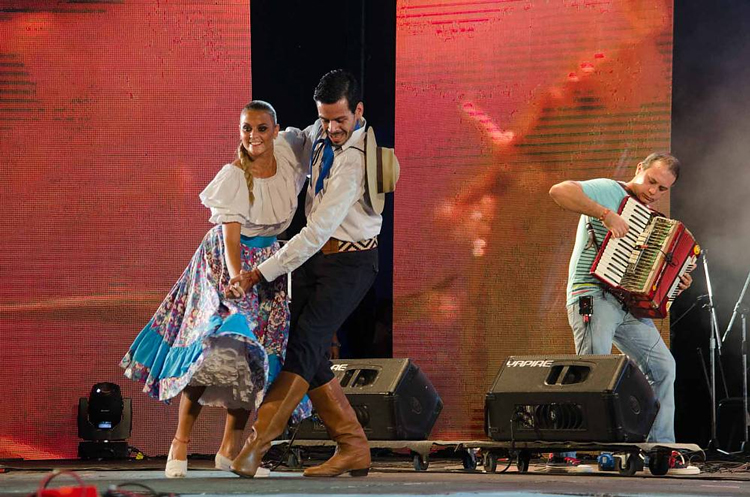Chamamé, a traditional form of music from Argentina was inscribed this week on UNESCO’s Representative List of the Intangible Cultural Heritage of Humanity. Argentina
Chamamé is mostly performed in the Corrientes province in northeastern Argentina. Its key elements include a style of ‘close embrace’ dancing where participants hold each other chest to chest and follow the music without set choreography.
Other parts include musiqueada, a celebratory act that includes a party, prayer and sapukay, a characteristic phonation or cry accompanied by gestures and movements to express emotions such as joy, sadness, pain, and bravery.
The violin and vihuela were the original instruments used in Chamamé music, but the guitar, harmonica, two-row diatonic button accordion, bandoneon, and double bass were later added.

The singing is rooted in worship songs. Traditionally, lyrics and poetry were in Guarani, the regional native language, but today, oral traditions are transmitted in the yopará dialect, a combination of Spanish and Guarani.
Chamamé music and dancing are an essential component of the regional identity and play major social roles as they are frequent features of community and family gatherings, religious celebrations, and other festive events.
Chamamé underlines values such as love for one’s land, local wildlife and flora, religious devotion and a ‘way of being,’ a Guarani expression pointing to the harmony between the human, natural and spiritual realms.
The most famous international performer of chamamé is accordionist Chango Spasiuk.
[headline photo: Chamamé dancers with typical folk clothing – Photo by Zulma Ruiz Cuevas-Aron R. Fisman, 2019]
More about Argentine music



Chango Spasiuk is the son of the greatest. Raúl Barboza too.
Tránsito Cocomarola, Tarrago Ros/ Ernesto Montiel and Isaco Abitbol are the founders of our great and incredible form of music finally Heritage of Humanity!!!
Thanks for postin this.
Grandissima esecuzione, grandissimi artisti
Florindo Cirignano